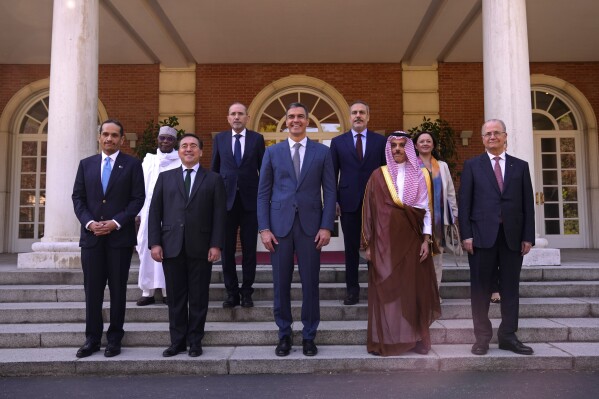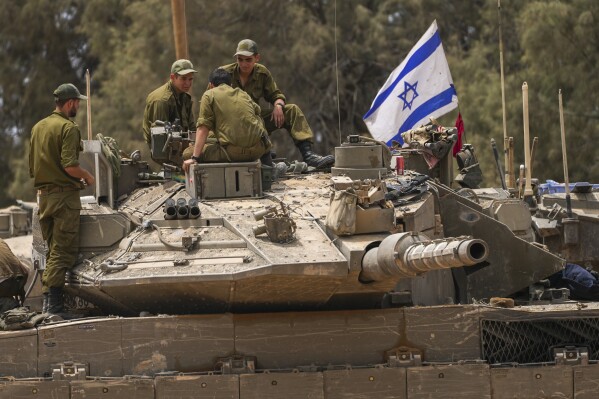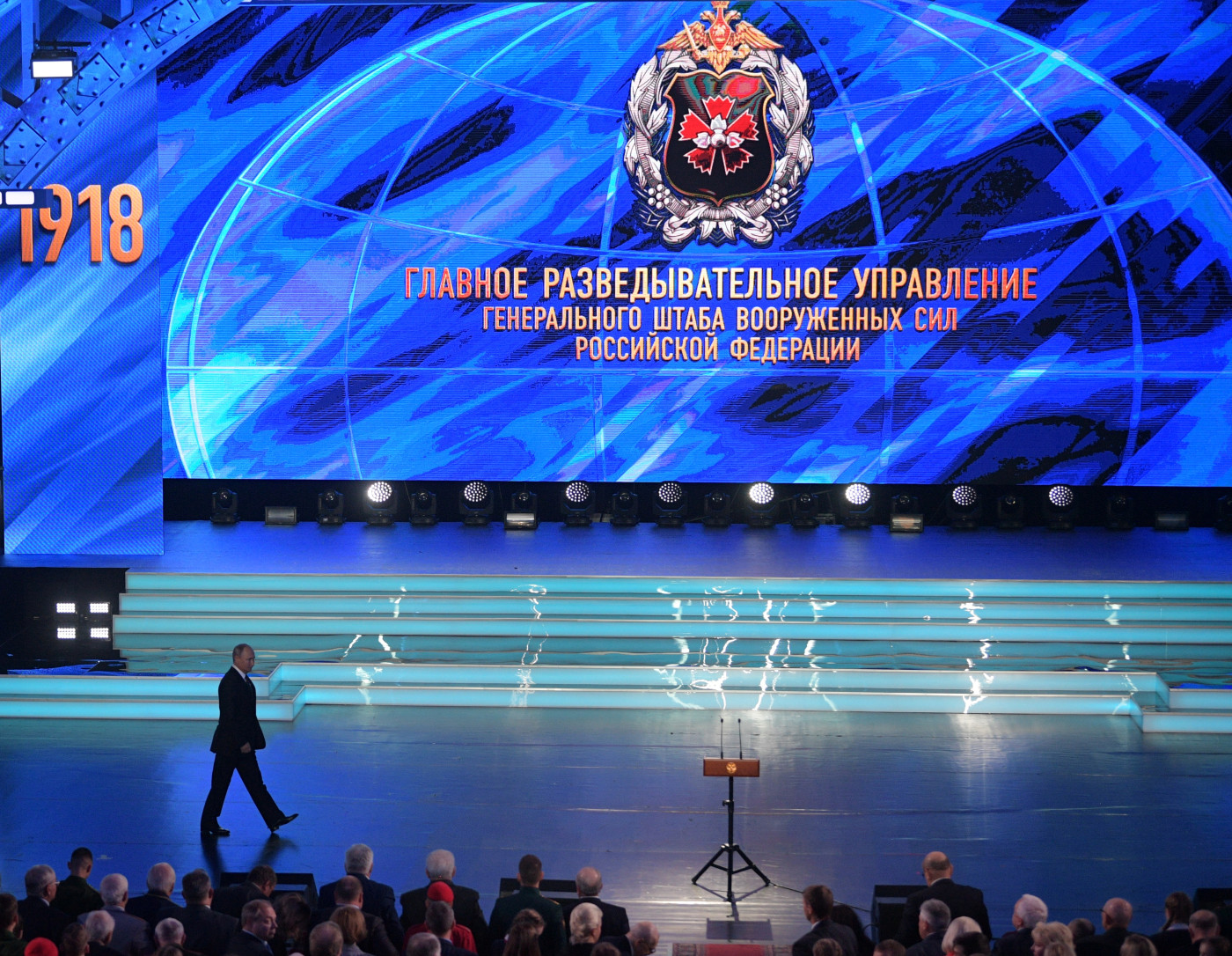The UN Troops Fighting to Prevent the Next Great War in the Middle East
With an already deeply destabilized Middle East on the precipice of a potentially even broader conflict, around 10,000 troops from nearly 50 nations stand on one of the most violent and volatile front lines in the region.
This is the United Nations Interim Force in Lebanon (UNIFIL), which has the grim distinction of being the deadliest mission of all U.N. peacekeeper postings, with some 334 fatalities registered since its establishment in 1978. UNIFIL has weathered two major wars and a long history of cross-border hostilities, and its chief warns that the situation today threatens to reach a breaking point.
The warning comes as the United Nations observes its annual Peacekeepers Day on Wednesday while still reeling from a series of recent setbacks in Africa, and amid calls for not only preserving but expanding the role of these international forces gaining traction in a bid to address the seemingly intractable yet increasingly dangerous unrest gripping the Middle East.
"We are extremely concerned about the current situation and the possible potential for escalation," Lieutenant General Aroldo Lázaro Sáenz, head of mission and force commander for UNIFIL, told Newsweek. "This is our great concern."
Lázaro is in a unique position to express these concerns directly with the parties to the conflict given the channels of communication UNIFIL maintains. But the outbreak of the deadliest and longest-ever war between Israel and the Palestinian Hamas movement in the Gaza Strip has deeply destabilized the Blue Line that divides Israel and Lebanon, where Israeli forces and the Hezbollah movement have engaged in daily, intensive exchanges of fire.
"I have always emphasized our concerns about the potential for misunderstandings, miscalculations and for escalation that could lead to something that provokes [something] nobody wants, a wider conflict with unpredictable consequences," Lázaro said. "Everybody is aware of this danger."
The U.N. at the Heart of the Conflict
U.N. Peacekeeping traces its 76-year history to the very conflict still at the core of the unrest now ravaging the Middle East. The first-ever peacekeeping operation was established in May 1948 to respond to the first Arab-Israeli war that followed the United Kingdom's withdrawal from the colonial Mandate of Palestine amid competing territorial claims.
UNIFIL was created three decades later following three more major Arab-Israeli conflicts and the 1978 Israeli invasion of Lebanon, from which Palestinian militias had launched cross-border attacks amid the country's civil war. Israel invaded again in 1982, occupying parts of the country for some 18 years facing off with militias led by the newly formed Hezbollah, a powerful Iran-backed group, until withdrawing in 2000.
Israel and Hezbollah fought another month-long war in 2006, ending with U.N. Security Council Resolution 1701, which called for the full disarmament of all non-state actors in Lebanon, including Hezbollah, which only agreed to withdraw north of the Litani River. The group maintained a presence along the border, however, and both Hezbollah and Lebanese officials have frequently accused Israel of violating the resolution by occupying border posts and conducting regular flyovers with military aircraft and vehicles.
Newsweek has reached out to Hamas, Hezbollah, the office of Israeli Prime Minister Benjamin Netanyahu and the White House for comment.
Despite occasional episodes of violence, it was not until the outbreak of the latest conflict in Gaza on October 7, 2023, that the border once again became an effective war zone. As in previous eruptions of fighting along the Blue Line, UNIFIL personnel have not been spared the current strife, with reports of convoys and observation posts coming under attack over the past seven months.
"Perhaps now, more than ever, the member states could understand the value of United Nations Security Council Resolution 1701, the full implementation of which is key to achieving lasting stability that could lead potentially to a permanent ceasefire," Lázaro said. "This is the key issue."
"The full implementation of 1701 by both sides will give the opportunity to achieve the solution and the mission can open a window of opportunity for the parties to move forward in this direction," he added. "But I repeat that we cannot be a substitute for a political process."
But a political solution has proven elusive, particularly as the clashes along the Israel-Lebanon border have become more intertwined than ever with a broader crisis that has consumed the region, one linked both to the Israeli-Palestinian conflict and a simmering rivalry between Israel and Iran. In addition to Hezbollah, other militia factions of the Tehran-aligned "Axis of Resistance" have entered the fray from Iraq, Syria and Yemen, all demanding an end to Israel's offensive in Gaza.
Israel has vowed to continue its campaign until delivering a lasting defeat to Hamas, which sparked the latest conflict with a stunning surprise attack on Israel and continues to maintain a presence across Gaza despite seven months of war.
Even in the event of the group's defeat, however, questions linger over the future governance of Gaza, which has changed hands four times since the end of U.K. colonial rule in 1948, first occupied by Egypt, then seized by Israel in 1967, handed over to the Palestinian National Authority (PA) in 2005 and ultimately taken by Hamas amid a violent inter-Palestinian rift in 2007.
Prospects for Peacekeepers in Gaza
One proposal issued earlier this month by the Arab League during its latest summit dominated by the war in Gaza was to introduce a U.N. peacekeeping force to the embattled territory.
U.N. Under-Secretary-General for Peace Operations Jean-Pierre Lacroix, who oversees all U.N. peacekeeping operations, took notice of the motion, along with others like it expressed by different member states.
"What I could say is the following," Lacroix told Newsweek. "I think peacekeeping has to be based on an agreement, some sort of agreement between the parties, otherwise we're not talking about peacekeeping, we're talking about peace enforcement."
"So, there has to be a political base in the form of at least a ceasefire agreement, if not a broader political agreement for peacekeeping to be meaningful, to have a raison d'être (justification for existence)," he added. "Now the second element, which I believe is critical, is acceptance by the parties; there has to be an acceptance for that role from the parties."
And though not a legal requirement, Lacroix also argued "it's important in practice to have acceptance by the local communities."
This point could prove especially challenging as the recent polling by the Palestinian Center for Policy and Survey Research showed little backing for the U.N. taking a larger role in Gaza.
The latest survey, published last month, showed a mere 1 percent of respondents in Gaza voiced their preference for U.N. control, though the alternative option of a dedicated U.N. peacekeeping force was not provided. A slim majority of 52 percent still prefers Hamas rule, with 21 percent choosing Palestinian Administration (PA) without President Mahmoud Abbas, 19 percent for the PA under Abbas, 5 percent for one or more Arab countries and 1 percent for the Israeli military.
Above and beyond these elements, however, there is another core requirement to establish any mandate for a new U.N. peacekeeping mission for Gaza, and that, as Lacroix pointed out, "has to be a decision by the Security Council."
A World Divided
Responding directly to the Arab League's U.N. peacekeeping proposal, U.S. State Department deputy spokesperson Vedant Patel told reporters earlier this month that U.S. officials have, "first and foremost, been focused on bringing a conclusion to this conflict."
"We have been having conversations with partners in the region about a post-conflict Gaza early on in this conflict. We've begun those conversations," Patel said. "Many partners, both in and out of the Arab world, share our concerns and share a willingness to play a constructive role when conditions allow."
"But there is a convergence among many of them that we need to see this conflict end," he added. "We need to see a ceasefire, we need to see hostages released, we need to see more humanitarian aid getting in, and we need to see the space for the diplomacy to happen to get us on a path for a Palestinian state and see some progress for the Palestinian people."
Pressed for an answer, however, Patel said that "this is something that we know that Israel is focused on in working defeat Hamas," and "candidly, the addition of additional security forces could potentially put that mission into compromise."
The U.S. is a permanent member of the U.N. Security Council giving it veto powers that it has wielded on a number of occasions in relation to the Israeli-Palestinian conflict, including striking down several calls for ceasefires in Gaza and blocking a bid for Palestinian membership at the U.N. in April.
Also necessary would be the backing or at least an abstention from fellow permanent U.N. Security Council members China, France, Russia and the United Kingdom. Such consensuses on contentious issues have become increasingly rare in recent years, with just one resolution succeeding in calling for a cessation of hostilities in the Israel-Hamas war due to Washington's decision to abstain in March.
"I think we have to ask ourselves what will be the space that will be left to the U.N. as far as its role on peace and security is concerned," Lacroix said. "And the main challenge really has to do with the division of our member states."
What this means for peacekeeping, particularly, he said is that, while "all peacekeeping missions are out there to support peace processes, very few of them are moving forward in an encouraging way." In addition, he said, we're seeing more competition between member states, even in some peacekeeping settings."
Such competition has become especially noticeable across Africa, where local conditions and international trends have led to geopolitical shifts. Skepticism and even anger have been increasingly directed in recent years toward Western powers, particularly France and the U.S., which have withdrawn and have been called to withdraw troops from several nations, while cooperation with China and Russia was on the rise.
Last year, U.N. peacekeepers were forced to shutter their mission in Mali amid calls from the country's military-led government and international divisions. The Democratic Republic of Congo has since demanded similar action, echoing accusations that not enough has been done to improve security conditions.
It's a worrying trend for the future of U.N. peacekeeping, but Lacroix also saw potential opportunities.
"Assuming that we continue to have at least some space left for from our member states to address at least some crises through a multilateral lens, then I believe that what we will see and what we have to work towards is an increased diversification of the way in which we operate," Lacroix said. "We need to make new models and we need to look at how we [can] do the old functions of peacekeeping differently, given that we have a completely different world from the world of 50 years ago when some of the older peacekeeping operations were created."
"So, I think these are the challenges," he added, "and, at the same time, opportunities, as usual, in the these very uncertain times."
The Conflict at Hand
And yet even amid discussions of the future, the present continues to prove deeply unpredictable as U.N. troops continue to stand in the line of fire between Israel and Lebanon.
With Israeli demands for Hezbollah to pull its force north of the Litani River unheeded, senior Israeli officials have increasingly warned of a potential offensive into the neighboring country to uproot the group by force. Hezbollah, for its part, has vowed to resist any attempts to infiltrate into Lebanese territory.
And yet a larger conflict has to erupt despite daily exchanges of attacks, something Lacroix said that UNIFIL has had a hand in de-escalating.
"The role of UNIFIL is critical because it's the only channel between the two parties," Lacroix said, "and, through that channel, we managed to avoid misunderstanding and potential cause for escalation."
Lázaro, the UNIFIL head of mission and commander, also noted key successes, "We have seen the potential for serious escalation on several occasions."
"As peacekeepers we continue to urge everyone to cease the fire, to avoid this escalation, which would cause more harm to communities along the Blue Line north and south," Lázaro said. "There is a path back to stability and I firmly believe that diplomacy can lead to a possible solution, and UNIFIL continues these liaison and coordination activities with the parties to create the best conditions to advance towards this goal."
"It will take hard work of course, compromise on all sides, it is not going to be easy," he added, "but a political solution is the only way we consider to achieve lasting peace, a political solution is the way to achieve the outcome."
Disclaimer: The copyright of this article belongs to the original author. Reposting this article is solely for the purpose of information dissemination and does not constitute any investment advice. If there is any infringement, please contact us immediately. We will make corrections or deletions as necessary. Thank you.


